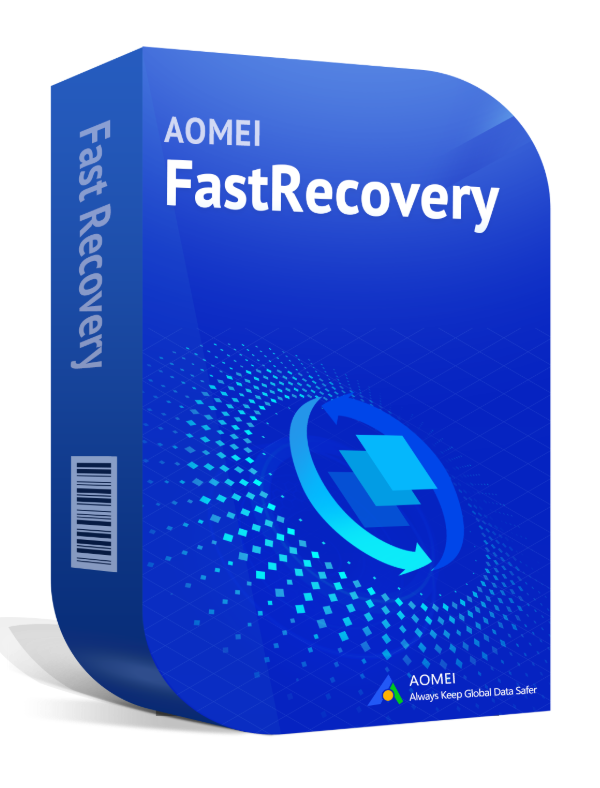How to Fix Hitachi External Hard Drive Not Recognized
Explore the "Hitachi external hard drive not recognized" puzzle, uncovering its origins, exploring potential causes, and mastering data recovery with AOMEI FastRecovery to revive your unresponsive Hitachi external hard drive.
In the labyrinth of technological glitches, the "Hitachi external hard drive not recognized" enigma stands as a perplexing challenge for users. Imagine plugging in your reliable Hitachi external hard drive only to find it playing an elusive game of hide-and-seek with your computer.
This guide aims to decipher this digital puzzle, offering insights, solutions, and a roadmap to reclaim your data and device.
Possible Reasons for Hitachi Errors
The backdrop of the "Hitachi external hard drive not recognized" predicament is a landscape marked by frustration and confusion. Despite being physically connected, these external hard drives seem to vanish from critical locations like File Explorer and Disk Management.
The scenario poses a unique challenge: how can a seemingly intact device defy detection? Understanding the origins of this nonrecognition issue is crucial to navigating a solution.
1. Malfunctioning USB Ports
A loose connection or a malfunctioning USB port can often be the root cause. Before delving into complex solutions, a basic check and cable swap might suffice.
2. Outdated Device Drivers
Just like any hardware, external hard drives rely on drivers. An outdated or corrupted driver can lead to recognition issues. Updating or reinstalling the driver is a potential remedy.
3. Physical Damage
External hard drives, often subjected to rough handling, are susceptible to physical damage. A drop or exposure to extreme conditions can render the drive unreadable.
4. Inadequate Power Supply
Insufficient power supply can hinder proper functioning. Ensuring a stable power source is crucial to prevent recognition hiccups.
5. File System Incompatibility
Misalignment of the file system between the Hitachi external hard drive and the PC can lead to nonrecognition. Formatting or initializing the drive may be necessary.
Understanding these triggers sets the stage for tackling the recognition conundrum. Now, let's explore the powerful tool that can aid in data recovery.
Fix Hitachi External Hard Drives Not Recognized
Navigating the landscape of solutions requires a systematic approach to breathe life back into your nonresponsive Hitachi external hard drive. Here are actionable steps to fix unrecognized Hitachi external hard drive:
1. Check USB Ports and Cable
Start with the basics. Ensure the USB port is functional, the cable is not damaged, and the connection is secure. A loose cable might be the root cause.
2. Initialize the Hard Drive
If the Hitachi external hard drive appears unallocated or not initialized in Disk Management, the solution may lie in initialization. Right-click on the drive, choose "Initialize Disk," and follow the on-screen prompts.
3. Update Device Drivers
Outdated or corrupted device drivers can hinder recognition. Navigate to Device Manager, locate the external hard drive under disk drivers, and update the driver.
4. Change Drive Letter
In Disk Management, changing the drive letter can sometimes trigger recognition. Right-click on the drive, select "Change Drive Letter and Paths," choose a new letter, and confirm.
5. Format for Compatibility
Incompatibility with the PC's file system can be a culprit. Format the Hitachi external hard drive to a compatible file system using tools like Diskpart or, for a more user-friendly experience, MiniTool Partition Wizard.
6. Surface Test for Bad Sectors
Unrecognized external hard drives may have underlying issues like bad sectors. Use the Surface Test feature of MiniTool Partition Wizard to identify and address these problems.
By meticulously applying these solutions, you increase the chances of resurrecting your Hitachi external hard drive and bidding farewell to the recognition quagmire.
External Hard Drive Data Recovery with AOMEI FastRecovery
Enter AOMEI FastRecovery, a data recovery tool that stands as a beacon of hope for those grappling with lost data. AOMEI FastRecovery is not just a tool; it's a wizard with features that make data recovery a breeze.

-
AOMEI FastRecovery boasts an intuitive and user-friendly interface, ensuring even those without extensive technical expertise can navigate the recovery process effortlessly.
-
From documents and images to videos and more, AOMEI FastRecovery supports the recovery of various file types, providing a comprehensive solution for users with diverse data needs.
-
The recovery process is streamlined with step-by-step instructions, guiding users through the necessary actions to retrieve their valuable data.
Follow the easy steps here, and you can recover deleted data easily.
Step 1. Install and run AOMEI FastRecovery on your Windows. Hover the mouse over the drive that saved deleted files before, and click Scan.
Step 2. AOMEI FastRecovery will automatically do Quick Scan and Deep Scan to show all recoverable files. You could pause and stop the process at any time if your files are found.
🌟Tips: Preview or filter encrypted files depending on Document Type, Size, Date, Path, etc. You can also specify the file name in the search box to locate it quickly.
- Type: Select the file type (Documents, Images, Videos, Audios, Mails, Webpages, Compressed files, etc.)
- Modification Date: Set the date (today, yesterday, last 7/30 days, etc.)
- Size: Filter the file size (<128KB, 128KB~1MB, 1MB~ 512MB, 512MB above,etc.)
Step 3. Choose the encrypted files you want from the drive to recover and click "Recover x files". The restore button will display the number of selected files and their total size to determine the integrity of the files.
Step 4. You will then be asked to choose a location. Please choose a new location rather than the old location to avoid overwriting data.
In Conclusion
In the realm of technology, where devices often seem to have a mind of their own, the "Hitachi external hard drive not recognized" issue stands as a testament to the challenges users may face. Armed with knowledge about the background, possible causes, data recovery tools like AOMEI FastRecovery, and effective troubleshooting steps, you can reclaim control over your digital storage. Remember, the journey to revival begins with understanding, and this guide serves as your roadmap out of the recognition maze.


